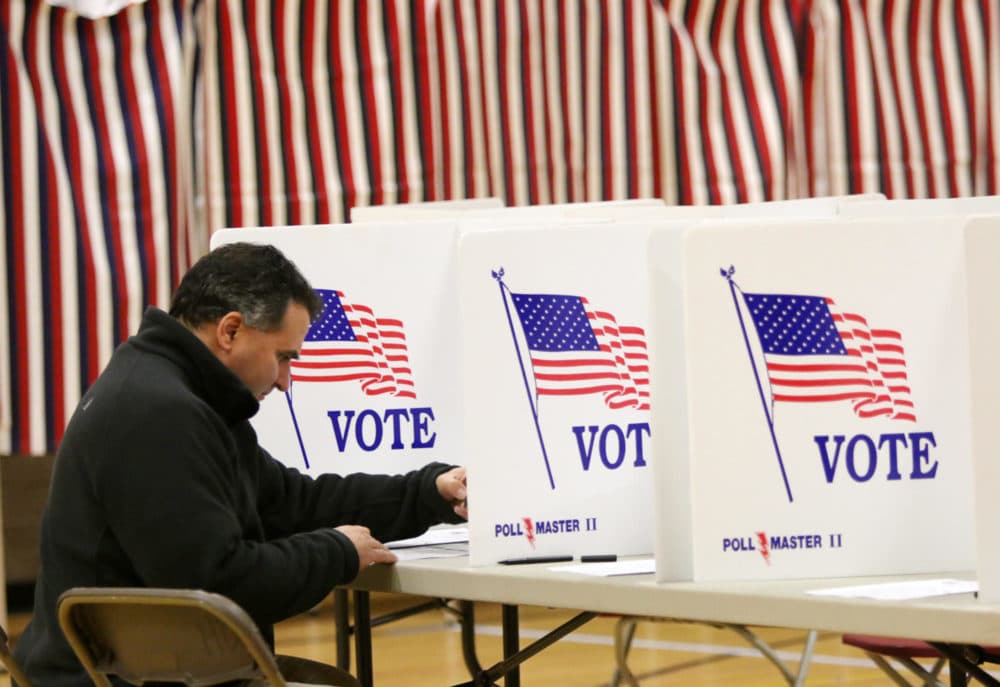Advertisement
Controversial New Hampshire Voting Law Struck Down In Superior Court

A superior court judge has struck down a controversial New Hampshire voting law known as SB3, saying it’s unconstitutional and unreasonably burdens the right to vote, but the decision is expected to be appealed to the New Hampshire Supreme Court.
The Republican-backed law passed along party lines in 2017 and was challenged in court soon after. It added new steps to New Hampshire's voter registration process, asking people to prove they live where they’re trying to vote, and new penalties for those who don't comply — though the state has been blocked from enforcing those penalties while this lawsuit is ongoing.
In a ruling issued this week following a lengthy hearing process in 2018 and 2019, Hillsborough Superior Court Judge David Anderson said the state failed to prove that the law was necessary to protect the integrity of New Hampshire’s elections or prevent voter fraud.
Rather, the judge said, there is no proof such fraud is a serious problem in New Hampshire — and instead, the law added complexity and confusion that could dissuade people from voting.
As Anderson explained in one section of his more than 50-page ruling, the totality of the changes enacted by SB3 seemed powerful enough to discourage participation, even though the state repeatedly argued that no voter would be turned away at the polls:
"The problem with SB 3 is not that it creates a system that encourages voters to be actively turned away from the polls or physically prevents individuals from registering by, for example, requiring specific types of documentation that are impossible for one group to obtain. The burdens imposed by SB 3 are more subtle; the new process establishes enough hurdles, the forms contain enough complexity, and the penalties present enough risk that they tend to dissuade a specific type of voter from even engaging with the process. In this regard, the State's constant refrain that nobody was prevented from voting rings hollow. SB 3 does not stop someone at the polls from casting a ballot; it discourages them from showing up in the first place."
In a statement provided Thursday afternoon, New Hampshire Solicitor General Daniel Will said the state plans to challenge Anderson's ruling.
"After an initial review of the order, we expect to appeal the decision to the New Hampshire Supreme Court," Will said.
The New Hampshire Secretary of State's office, a proponent of the voting law in question and one of the defendants in the suit, has not responded to an email inquiry seeking comment on today's ruling.
SB3 is one of two voting policy changes tied up in ongoing litigation. The other, HB1264, altered the state's residency definition and is being challenged in federal court — though the New Hampshire State Supreme Court was recently asked to intervene in order to clarify what that law actually changes.
This story is a production of the New England News Collaborative and originally published by New Hampshire Public Radio.